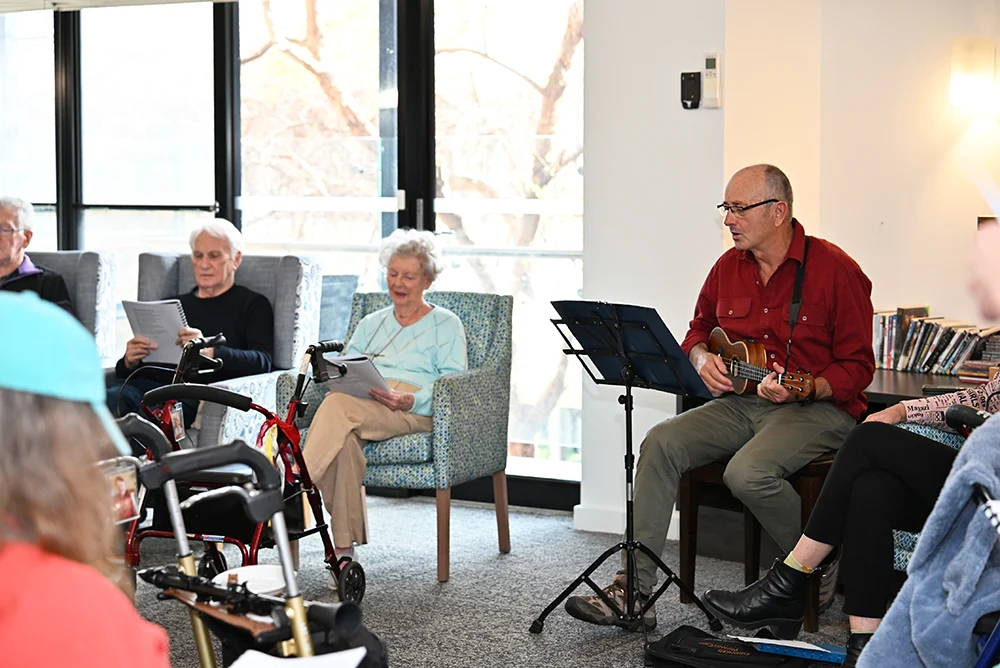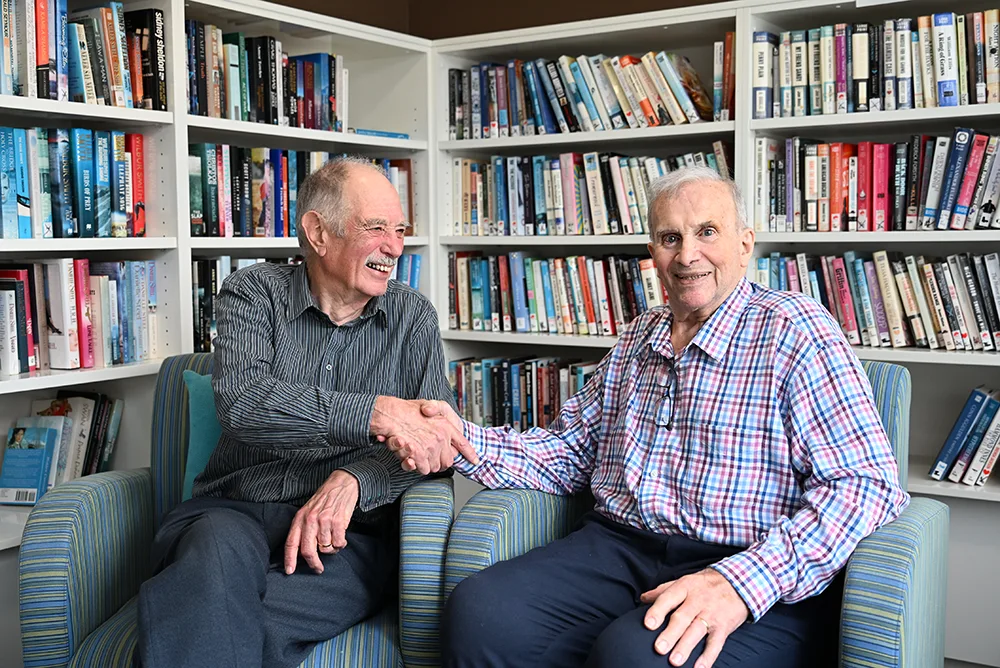It's Heart Research Month - Learn How to Maintain a Healthy Heart (+ Mind, too!)

According to Heart Research Australia, “Heart disease is Australia’s leading single cause of death, with 18,590 deaths attributed to heart disease in Australia in 2017. Heart disease kills one Australian every 28 minutes.”

Shocking heart statistics:
- 23 People die each day of a heart attack
- Heart disease is the single leading cause of death in Australia
- Heart disease kills one Australian every 30 minutes
Heart Research Month raises awareness about the devastating impact of heart disease, and the importance of supporting life-saving heart research to find new ways of preventing, diagnosing and treating heart disease. Heart Research Day is celebrated on the 14th of February – the “Day of Hearts” – encouraging everyone to love and take care of their heart.
Most of us know eating healthy and staying fit is a great way to help prevent cardiovascular disease, but what else can you do?
According to Cardiologist Dr Edward Barin at Heart Research Australia, there’s plenty you can do to reduce your modifiable risk factors. Dr Barin has developed a wonderful new approach to keeping hearts healthy, and he calls it the “4-M approach”.
1. MOVE IT
First, you need to MOVE. As we get older, our joints and muscles get a little harder to move, which can make it seem harder to exercise, however you don’t need to run a marathon to be active.
There are a few simple things you can do to help maintain your fitness levels:
- Walking when you can – even 5 minutes here and there can really add up.
- Taking part in armchair exercises – get those arms moving and legs moving in the safety and support of an armchair.
- Take part in physiotherapy or balance classes – by working on your balance you are also working on your strength and fitness.
- If you are no longer able to walk, moving your arms in repeated motions with or without weights increases your heart rate and cardiovascular fitness. If possible, sit less! Break up long periods of sitting with a quick stretch or walk, no matter how fit you are. Sitting for long periods of time, according to the Heart Foundation, increases your risk of heart disease and type 2 diabetes as well becoming overweight.
Dr Barin says that moving and strength training can help slow down the onset or progression of dementia as well as reducing the risk of an accidental fall.
Mayflower engages a number of in-house allied health specialists to assist residents to maintain their mobility and increase movement. These include physiotherapist Lauren Goodwin and occupational therapist Hongyi Sun from Empower Healthcare.
According to Lauren, even small movements can help.
“Move your ankles as much as you can,” says Lauren. “Make it fun and try to spell your name with your toes in the air! We have what is like a blood pump in our calf muscles, and this helps pump blood back up to our hearts, so it is a good idea to move your ankles every hour,” she says.
“Not everyone has the same range of movement, but it’s important we maintain what we do have.”
Hongyi says there are a number of ways for people who are unable to walk to remain fit and physically active.
“You can march your feet in one spot while sitting, or while lying on the bed you can work against gravity by moving your arms and legs as much as you can in your available range of movement".
Lauren says exercise is also important for our mental health.
“Exercise increases the endorphin levels in our brain, which helps us to feel more positive and put us in a better mood!”
Tom, a resident at Mayflower Brighton says that he gets a lot of benefits from his physiotherapist.
“My physiotherapist comes with me for a long walk, then I repeat the walk again twice, later in the day,” says Tom. “I find this really helps keep me moving.”
“I do the exercises my physio gives me daily, and he will often take me for a walk in the garden or down to the gym. We usually stop somewhere along the way and have a chat about life together.”
Safety first! The above tips and ideas are not personalised and it’s important to note when undertaking any new exercise, you should speak to your healthcare professional first. If you would like more tips on exercise, see your physiotherapist or occupational therapist for individualised ideas.
2. MEALS
“We are what we eat,” I hear you say!
'Let thy food be thy medicine and medicine be thy food'
This proverb is often ascribed to Greek Physician and ‘father of medicine’ Hippocrates (460 BC), and is used to emphasise the importance of nutrition and lifestyle to prevent or treat disease.
By eating mindfully and focusing on the nutrition of what you eat, you can extend your knowledge of good nutrition beyond calories and “good” and “bad” foods.
Keeping a well-balanced diet can lead to improved health and wellbeing. When it comes to heart health, it is important to understand the difference between trans fats (fat that is bad for your heart and is unable to be metabolised) and polyunsaturated and monounsaturated fats (fats that are beneficial for your brain and heart health) and how these can affect your body.
According to the Heart Foundation and Heart Research Australia, there are some simple ways to modify your diet to increase heart health:
- Reduce your salt intake – extra salt can be hidden in sauces, gravies and savoury snacks. You may choose to add herbs and spices instead of salt to increase the tastiness of your meals. A small sprinkle of curry powder tastes great on rice, and fresh dill is lovely on fish!
- Reduce or remove artificial trans fats entirely – this is particularly found in savoury snacks such as potato chips and biscuits.
- Increase your vegetable intake, especially colourful ones! These are packed with antioxidants, vitamins and fibre.
- Choose healthy proteins – such seafood, beans and lentils (these are also high in fibre) and regular, but small amounts of nuts and seeds. The Heart Foundation suggests we limit red lean meat to 1-3 times a week.
- Have small amounts of unflavoured milk, yoghurt, and cheese. If you have high cholesterol it may be wise to choose a low-fat version, however check that sugar hasn’t been added or increased by comparing the sugars on the nutritional label at the back with a full fat version.
- Healthy Fats! Choose unsalted and raw nuts, seeds, avocados, olives and their cold-pressed oils, but limit these to small amounts as they are very high in calories. The Heart Foundation states “These types of fats help to reduce 'bad' cholesterol (LDL) and increase 'good' cholesterol (HDL), reducing the risk of heart disease.”
- Water, water, water! Water is essential for our bodies to function and to maintain our blood pressure. It has no calories and quenches our thirst. Soft drinks and caffeine can dehydrate us, putting more strain on the body to function normally. Kristina, a registered nurse at Mayflower Brighton explains “water is one of the biggest and simplest things we can do to keep blood pumping through our body!”
- Limit your alcohol intake! Alcohol lowers ‘good’ cholesterol (HDL) and increases triglycerides. Triglycerides are a type of fat (lipid) found in your blood (fats) and when triglycerides are very high, it can spell trouble for your heart and lead to other health issues too. Talk to your doctor to find out what is right for you.
3. MEASUREMENTS
Ok, so you know eating healthily and staying as fit as you can help keep your heart healthy, but what else do you need to consider?
Keeping track of your measurements is key to monitoring your modifiable risk factors, and these include cholesterol levels, blood pressure, weight, sugar levels, waist circumference and your capacity for exercise and movement.
Doctors and nurses have always taught us that blood pressure, cholesterol, sugar levels and body weight are key indicators to monitor, however researchers have also discovered it is important to monitor your heart pump function, exercise capacity with a 6 minute walk test, kidney function and waist circumference, amongst other key indicators.
This is where having a consistent relationship with a doctor you trust can help you identify risk factors before they become a problem.
4. MENTAL APPROACH
Your mental approach to life and the circumstances around you plays a significant role in keeping your heart (and brain) healthy.
By having a sunny outlook on life, glass half full mentality, and optimistic view on things, you can help protect your heart health.
Some risk factors that can lead to heart disease in this category include emotional stress, anger, unforgiveness/bitterness and depression. According to Heart Research Australia these risk factors can be just as damaging to your heart as high cholesterol levels. A sudden death of a loved one, and the resulting stress on your body and mind can also pose a significant heart attack risk.
Connections to community play an important role in maintaining positive mental health. Here at Mayflower we work hard to ensure our residents are connected in a supportive environment, engaging in meaningful conversations and doing things they enjoy with like-minded people.
Our residents choose what they want to get involved in, and how often, with a range of regular social groups and activities on offer including craft groups, board games, bingo, walking groups, happy hour, discussion groups, and other specialist groups such as men’s social.
At Mayflower Brighton, we also have a Wellness Center, with the aim of helping retirement village residents remain independent at home, with a focus on staying active and well. Services are provided at low cost or no cost and include podiatry, audiology, physiotherapy, fitness classes, and free health checks.
Another way to connect is to phone a friend or loved one. Having a chat with someone you really care about goes a long way in keeping your mind and heart healthy. Mayflower resident, Tom Howard, enjoys contact with family and friends as well as other residents.
“My brother Bruce Howard calls in twice a week and we have a good chat about life and the Essendon football club,” says Tom. “My brother is in the AFL Hall of Fame for his famous photograph of legendary Carlton football player Alex Jesaulenko marking the ball.”
“I also love the bus outings,” he says. “Last year, when we went to the Air Museum we walked around exploring for hours.”
“I find visiting other chaps in the facility and going to the Men’s Social a good way to chat and be active. I’ve made some lovely friendships with a few of the chaps here, one bloke grew up just a few streets from me and goes for Essendon and we get along really well!” says Tom.
“And if I am feeling a bit down, staff members will always stop and have a chat with me. I get along really well with the lady who cleans my room.”
Breathing exercises are another fantastic, and very underrated way to help calm your mind and heart rate, particularly when you are feeling anxious or stressed.
Kristina, one of Mayflower’s registered nurses, says that she often uses breathing exercises when she is feeling the pangs of anxiety.
“I stop and breathe and focus on the ‘now’ putting all the stress and deadlines aside,” she says. “My heart rate calms down and reduces the feeling of anxiety. Being mindful is key.”
Lauren, Mayflower’s in-house physiotherapist, says breathing exercises can be highly effective.
“Deep breathing can reduce your heart rate, increase how much oxygen is sent around the blood stream and can help control your blood pressure. And the best cues for deep breathing is to have your stomach rise and fall, without raising your shoulders.”
Final hot tip from Kristina “Be aware of your own body! Listen to when somethings not right and let someone know! It’s important to be aware of how your body is feeling.”
To sum it all up, using the 4-M Approach and keeping your bodies Moving, mindfully choosing your Meals, keeping track of your Measurements, and maintaining an optimistic Mental mindset you can reduce your risk of heart disease at any age!

Mayflower Brighton has a fabulous Wellness program, aiming to keep residents fit, healthy and active.










